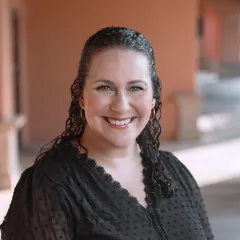School Counseling and Its Impact on Student Success
Ask any school counselor about a typical day, and it becomes clear that the role extends far beyond managing class schedules or supporting students during difficult moments. Today’s school counselors assist students in understanding who they are, identifying where they are headed, and determining how to reach their goals—academically, socially, and professionally.
Over the years, school counseling has evolved from a narrow focus on college applications and crisis intervention to a more comprehensive, structured system of student support. In high schools across the country, these programs are having a measurable impact on student success.

The Framework of Modern School Counseling
The work of school counselors is not only guided by instinct and tradition, it is structured around the ASCA National Model, a comprehensive framework developed by the American School Counselor Association. This model supports the development of student-centered, goal-driven counseling programs that are aligned with measurable outcomes.
The framework organizes counseling into four key components:
- Define: Establishes the standards for the school counseling profession, including ethical guidelines and student competencies.
- Manage: Involves setting goals, using planning tools, and establishing systems to guide program implementation and accountability.
- Deliver: Refers to the direct and indirect services counselors provide to students through curriculum, individual planning, responsive services, and collaboration.
- Assess: Focuses on evaluating the effectiveness of the counseling program through data analysis, reflection, and continuous improvement.
Together, these elements help counselors remain focused on addressing achievement gaps, improving student access, and supporting student success systematically and equitably.
A notable development in recent years is the growing emphasis on data-informed practice. Rather than relying only on observation or experience, school counselors now gather and analyze data to identify needs, guide interventions, and assess program effectiveness. This might include:
- Monitoring Free Application for Federal Student Aid (FAFSA) completion rates
- Identifying patterns in behavioral referrals
- Measuring how a new social-emotional learning initiative influences student engagement and well-being.

Why Is Counseling Important in Schools?
The high school environment presents a complex set of demands, particularly for adolescents who are still developing their sense of identity and trying to make sense of their future.
Students are often expected to manage rigorous academic schedules, extracurricular activities, family responsibilities, social pressures, and, for some, part-time employment—all while making decisions that may significantly influence their lives beyond school.
Within this context, school counseling programs offer students structured support to process these experiences and make informed, confident choices.
Research consistently indicates that comprehensive counseling programs are associated with improved student outcomes. Schools with strong counseling systems tend to report
- Higher graduation rates
- Lower disciplinary incidents
- Greater college and career readiness
Counselors frequently serve as the connection between students in crisis and the support systems that help them re-engage and succeed.
The benefits extend well beyond academics. Effective counseling programs address the needs of the whole student, supporting the development of confidence, emotional regulation, and essential interpersonal skills.
Many high schools implement tiered frameworks, such as the Multi-Tiered Systems of Support (MTSS), in which school counselors provide varying levels of support based on students' needs. They help identify students who need additional interventions, whether that involves intensive support or simply a reliable adult presence who listens and responds consistently.
Importance of Student-to-Counselor Ratios
One important factor influencing the effectiveness of school counseling programs is the student-to-counselor ratio. When counselors are responsible for too many students, it becomes challenging to provide personalized attention and timely interventions. Research has confirmed that lower ratios correlate with better academic performance, improved attendance, and enhanced social-emotional support.
National guidelines recommend a ratio of approximately 250 students per counselor, but many high schools exceed this, which limits counselors’ ability to engage deeply with each student’s unique needs. For schools seeking to deliver comprehensive counseling services that can genuinely impact student success, it is essential to address these ratios.
School Counseling Domains
The ASCA National Model organizes school counseling into three core domains: academic development, career development, and social/emotional development. Together, these areas support the growth of students as capable, well-rounded individuals prepared to succeed both in school and beyond.
Academic Development
School counselors support students in selecting appropriate coursework, staying organized, and developing the skills required for long-term academic progress. For students experiencing academic challenges or facing barriers outside the classroom, counselors often coordinate support services such as tutoring, referrals, or credit recovery programs.
Career Development
During high school, many students begin to explore their future plans more concretely. School counselors assist in this process by:
- Introducing career exploration tools
- Discussing dual enrollment or career and technical education (CTE) opportunities
- Helping students make connections between their individual strengths and available career pathways.
Social/Emotional Development
Students face a wide range of personal challenges that affect their learning and well-being. School counselors provide support by helping students develop self-awareness, manage conflict, and learn to regulate their emotions.
Some deliver structured social-emotional learning (SEL) lessons to entire classes, while others offer short-term individual support or facilitate referrals to community-based mental health providers when more intensive services are needed.
Current Priorities in School Counseling
As student needs become more complex and diverse, high school counseling programs are evolving to provide more targeted support. While the foundation remains rooted in the ASCA framework, several key areas have taken on new significance in recent years.
Mental Health and Wellness
There is a renewed emphasis on meeting students’ mental and emotional needs, focusing not just on responding to crises but also on building systems that promote long-term well-being. From stress management strategies to trauma-informed care, schools are creating space for students to reflect, decompress, and feel supported.
Many counselors now partner with community agencies to expand access to services while also leading in-house efforts around prevention and wellness education.
Cultural Responsiveness
As school populations become increasingly diverse, culturally responsive counseling is no longer optional — it is now a foundational aspect. Effective counselors develop the capacity to understand, affirm, and engage with students’ cultural backgrounds. This means recognizing how culture influences identity, communication, and decision-making, and it calls for deliberate efforts to remove barriers to participation, support, and achievement.
Data-Informed Decision Making
Increasingly, school counselors are expected to show the impact of their work using measurable outcomes. By analyzing trends in attendance, achievement, discipline, and student feedback, counselors can target their efforts more strategically. These data points help:
- Identify students in need
- Justify programming
- Refine service delivery
To support this shift, many districts are adopting tools that make data collection and planning more efficient and actionable. Tools such as Pathways from Education Advanced align counselor actions with student outcomes across all three domains.
Real Results Start With Strong Counseling
High school students face increasing demands that require counseling programs to address academic, social, and emotional needs. These programs must employ structured, data-informed strategies that extend beyond traditional roles and responsibilities.
Schools that invest in comprehensive counseling services position their students for greater success, including higher graduation rates, improved well-being, and stronger postsecondary readiness.
Integrating tools like Pathways can amplify these efforts by providing counselors with actionable data and aligned resources. These help translate insights into targeted support. In addition to enhancing individual student outcomes, such investments also contribute to building equitable and inclusive learning environments.
As school counseling continues to advance, leveraging evidence-based frameworks and innovative tools will be vital in meeting the diverse needs of today’s students and preparing them for the challenges ahead.
If your school is interested in new ways to improve the learning experience for children, you may also be interested in automating tasks and streamlining processes so that your teachers have more time to teach. Education Advanced offers a large suite of tools that may be able to help:
- Evaluation: A solution for documenting every step of the staff evaluation process, including walk-throughs, self-evaluations, supporting evidence, reporting, and performance analytics.
- Pathways: A graduation tracking tool that enables administrators and counselors to create, track, and analyze graduation pathways, ensuring secondary students stay on track to graduate.
- TestHound: Our test accommodation software helps schools coordinate thousands of students across all state and local K-12 assessments while considering various accommodations, such as for reading disabilities, physical disabilities, and translations.

More Great Content
We know you'll love




